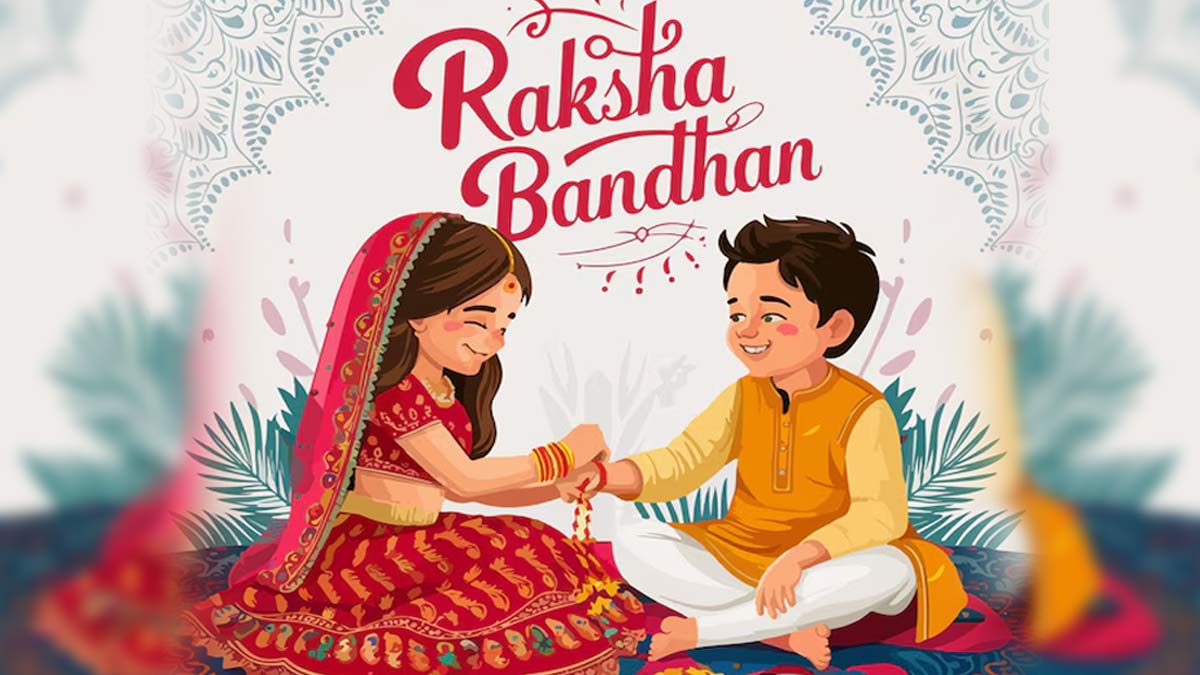Rakhabandhan
Raksha Bandhan, also known as Rakhi is a special Hindu festival dedicated to brothers and sisters’ love. It is a celebration of the bonds between a brother and sister, a symbol of brother-sister affection is observed in most Indian communities around the world. According to the Hindu calendar, Raksha Bandhan is celebrated in Shravana month during full moon day or Purnima day.
On this day, sisters tie a protection thread ‘Rakhi’ on their brother’s wrist as a mark of affection and pray for his long life. The brothers, in return, offer gifts and promise to protect their sisters all their lives.
The highlight of the ceremony is when a sister ties the Rakhi, a bejewelled silk string, around her brother’s wrist. These days, more elaborate modern versions of the rakhi may be gold or intricately woven strands of silk, but the traditional rakhi given to brothers on Raksha Bandhan is a single strand of silk that symbolizes the bond. The silk is delicate…almost invisible, but extremely strong. On Raksha Bandhan prayers are also said as the entire family joins the celebration.
“The sun radiates its sunlight, the radish spreads its seeds,
I tie the rakhi on you, my brother, and wish that may you live long.”
While the Rakhi tradition is believed to date back for millennia, it was only in the 16th century when it became widely popular. According to legends, the origin of Raksha Bandhan can be traced back to the day Lord Krishna was flying a kite and cut his finger. At that time Draupadi, the wife of Pandavas (five powerful and skilled sons of King Pandu. The Pandava brothers were collectively married to Draupadi), was so distressed to see him hurt that she tore a piece of cloth from her saree and tied it to his bleeding finger. Krishna was deeply moved by this gesture and promised to take care of her from evil. Krishna accepted it as ‘Raksha Sutra’ and when the Kauravas – Dushasana and his brothers (Kauravas are the 100 sons of the King of Hastinapur, Dhritarashtra, and his wife Gandhari) attempted to dishonour Draupadi, with Krishna’s blessings, Draupadi’s saree became endless when Dushasana tried disrobing her. This is how Shri Krishna saved Panchali just like a brother protects a sister from all evils.
Raksha Bandhan is observed on the last day of the Hindu lunar calendar month of Shraavana, which typically falls in August. The expression “Raksha Bandhan,” Sanskrit, literally, “the bond of protection, obligation, or care,” is now principally applied to this ritual. That’s why women in this picture are tying Rakhi to the first President of free India, Rajinder Prasad expecting “the bond of protection, obligation, or care”.
(Source: Wikipedia)

